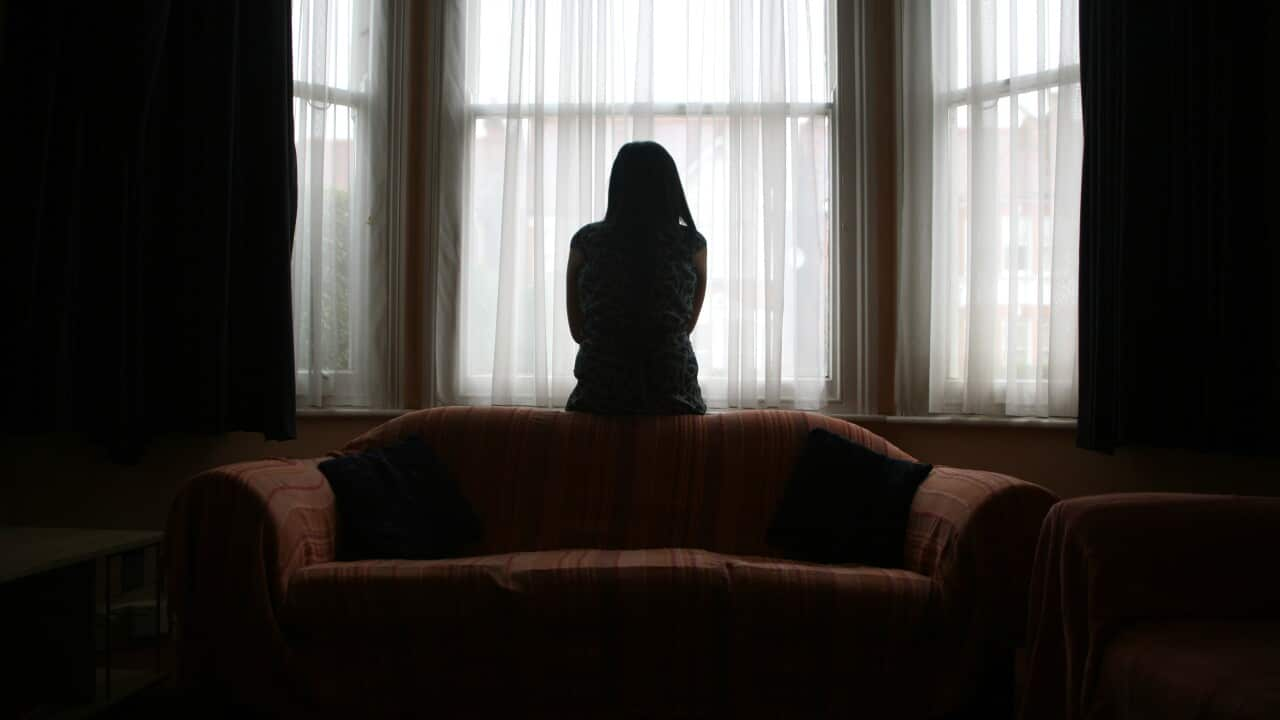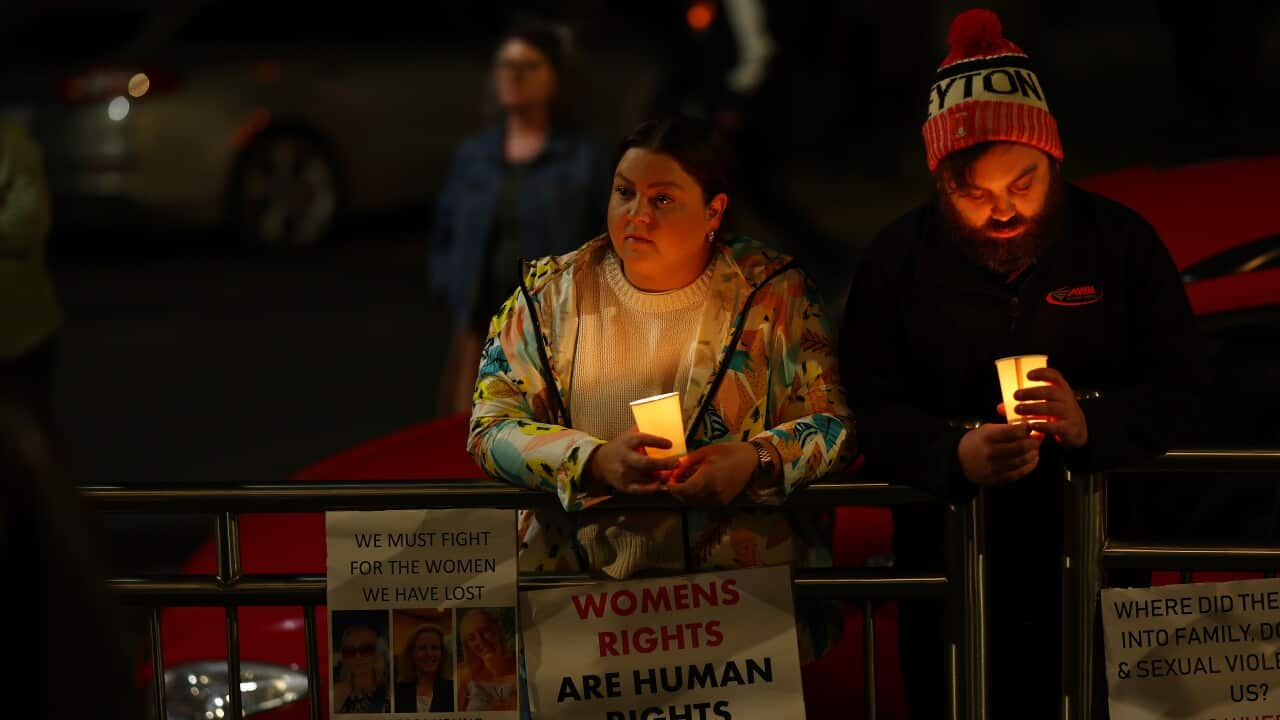This article contains references to domestic violence and self-harm.
Molly died by suicide in July 2022 as she tried to escape an abusive relationship. Her mother Julie didn't realise there was more anguish to come.
Molly's husband, whom Molly had been trying to escape, claimed her superannuation, despite her naming Julie as the sole beneficiary.
"Even knowing that legislatively I didn't have laws on my side, I tried very hard to show that he was the perpetrator of domestic violence and, therefore, should not be eligible for Molly's superannuation," Julie Adams said.
"After everything he had put her through, the fact that he still could access her super, myself, my family and the wider community ... found that just absolutely horrendous."
In the midst of grieving her daughter, Julie had to face a superannuation claims process that ultimately handed $65,000 of Molly’s savings to the man she feared the most.
At this election, a new commitment by Labor aims to make sure that stops.
Labor's promise to protect domestic violence victims' super
On Tuesday, Finance Minister Katy Gallagher announced Labor’s $4.7 billion package aimed at improving women’s safety and economic security.
Among the key reforms was a commitment to stop abusers from accessing their victims' superannuation through family law proceedings and preventing perpetrators from using the tax and corporate systems to create debts as a form of coercive control.
The Super Members Council (SMC), which represents more than 10 million Australian super fund members, has thrown its support behind the reform.
SMC deputy CEO Georgia Brumby said the reforms are a crucial step towards justice for victim-survivors of economic abuse.
"A perpetrator getting their victim’s super death benefit is an extension of the abuse. The intention to introduce these reforms is a critical step towards ensuring that people’s superannuation is protected and not used as a financial reward for perpetrators," she said in a statement.
“Perpetrators should not profit from their crimes. Closing this legal loophole will protect victims of family violence and financial abuse.
"We call on all political parties and independent candidates to pledge their support for these reforms, to protect those who have been wronged and not those that have caused harm."
What is the current legislation?
Under existing laws, an abuser can receive a victim’s superannuation death benefit unless they are the direct cause of that person’s death.
This currently applies even if the perpetrator has been convicted of family violence offences, or in cases when there was systemic abuse which indirectly contributed to the cause of the victim's death.
Christina Hobbs, co-founder of Verve — Australia's first superannuation fund for women — explained how perpetrators of financial abuse can gain access to a victim's superannuation.
"Even if somebody has nominated their parent, a sibling, a friend as a beneficiary of their super ... in most cases ... it would still go to a partner," Hobbs said.
"That’s because to be a valid beneficiary, someone needs to have financial dependence or interrelationship with the person who has passed away.
"The only way currently that a victim could ensure that their super doesn’t go to their partner is to create a will and direct their super to that will, and that is just simply impossible for most victims who are simply trying to survive."
One in four who took their life experienced domestic violence
Hobbs added that while the Labor government’s commitment is a step forward, she warned that it must be the beginning, not the end.
"This is useful legislative change. But we need legislation that really does protect victims."
She argues that in cases like Molly’s, financial justice can’t be separated from an overall systemic reform.
According to data collected by the Victorian Suicide Register on 4,790 suicides reported between 2009 and 2016, one in four people who died by suicide (24.5 per cent) had experienced domestic violence before their death.
In 2017 alone, 410 people died by suicide in Western Australia. Among them were 124 women and children and of those, 56 per cent were known to be victims of domestic violence.
"Ultimately, we need to see manslaughter legislation adjusted," Hobbs said.
"In virtually any case where there has been domestic violence as a contributing factor, it should be considered manslaughter to varying degrees."

Julie and her daughter Molly.
Justice for Molly
For Molly's mum, the proposed superannuation reforms offer a rare glimmer of hope for justice.
Julie said that because Molly died by suicide, her abuser was never held to account.
"She can’t stand up for herself any longer," she said.
"She never had the chance to live the life she should have had. And these reforms are a way of making her life have meaning beyond the life that she had."
If you or someone you know is impacted by family and domestic violence, call 1800RESPECT on 1800 737 732, text 0458 737 732, or visit . In an emergency, call 000., operated by No to Violence, can be contacted on 1300 766 491.
Readers seeking crisis support can contact Lifeline on 13 11 14, the Suicide Call Back Service on 1300 659 467 and Kids Helpline on 1800 55 1800 (for young people aged up to 25).
More information and support with mental health is available at and on 1300 22 4636.
Visit the to access articles, podcasts and videos from SBS News, NITV and our teams covering more than 60 languages.




